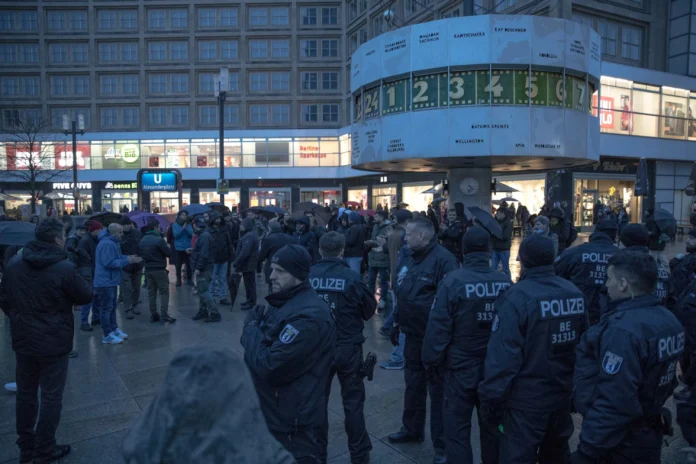The PKK, or Kurdistan Workers’ Party, has long been a controversial subject in Europe. Known for their armed struggle for Kurdish independence, the group has been labeled as a terrorist organization by many countries, including the United States and the European Union. However, a recent report by the Swiss Federal Intelligence Service (FIS) has shed light on the PKK’s covert activities in Switzerland and across Europe.
According to the FIS report, the PKK has been actively raising funds, engaging in propaganda, and carrying out various activities in Switzerland and other European countries. This has been done through various front organizations and charities, which have been used as a cover to funnel money and support to the PKK’s cause.
The report also highlights the PKK’s use of social media as a powerful tool for propaganda and recruitment. Through these platforms, the group has been able to spread their message and recruit new members, particularly among young people. This has raised concerns among authorities as the PKK’s radical ideology and violent tactics could potentially lead to radicalization and pose a threat to the security of European countries.
Furthermore, the FIS report also reveals the PKK’s involvement in criminal activities such as drug trafficking and extortion. These illegal activities serve as a source of income for the group and enable them to finance their operations in Europe and the Middle East.
Switzerland, in particular, has been a key location for the PKK’s clandestine activities. The country’s neutral stance and liberal laws make it an ideal base for the group to operate from. The PKK has been able to establish a strong network in Switzerland, making use of the country’s banking system and financial institutions to raise and transfer funds.
The FIS report has raised concerns among Swiss authorities, who are now taking steps to crack down on the PKK’s activities. The Swiss government has already frozen the assets of several PKK-linked organizations and individuals, and stricter measures are being implemented to prevent the group from operating freely in the country.
However, the PKK’s activities are not limited to Switzerland alone. The group has a strong presence in other European countries as well, with Germany, France, and Belgium being key locations. The FIS report highlights the need for a coordinated effort among European countries to tackle the PKK’s activities and prevent them from using the continent as a safe haven.
The PKK’s actions have also sparked outrage among the Kurdish community in Europe, who condemn the group’s use of violence and see it as a hindrance to their efforts for a peaceful resolution to the Kurdish issue. Many Kurdish organizations have distanced themselves from the PKK and have called for peaceful means to achieve their goals.
In conclusion, the FIS report has shed light on the PKK’s covert activities in Switzerland and across Europe. The group’s use of front organizations, social media, and criminal activities to fund their cause and spread their message is a cause for concern. It is essential for European countries to work together and take strict measures to prevent the PKK from operating freely and to ensure the safety and security of their citizens. The Kurdish community must also continue to distance themselves from the PKK and advocate for a peaceful resolution to the Kurdish issue. Only through joint efforts and a united front can the PKK be stopped from using Europe as a base for their illegal activities.


